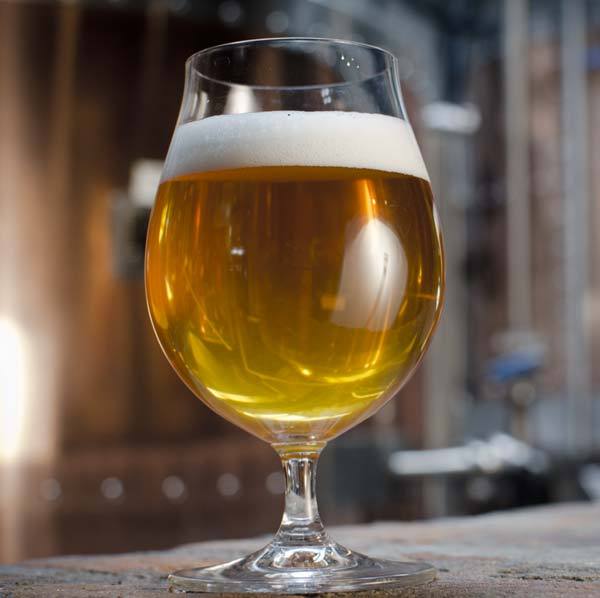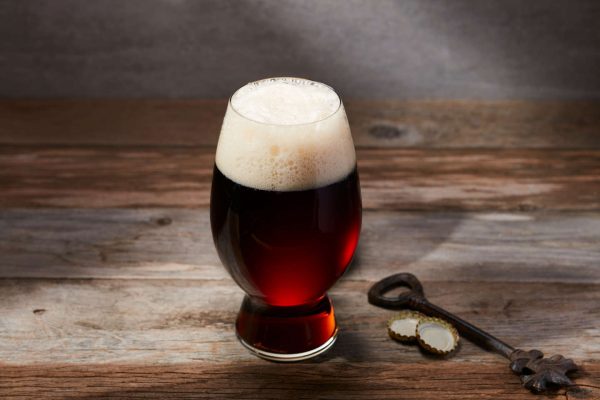
The following beer recipe is featured in the January/February 2005 issue of Zymurgy magazine. Access this issue along with the archives with Zymurgy Online!
Bill Schneller has been a homebrewer for 15 years and brews mostly Belgian style ales. He knows they are mysterious, and the recipes act more like guidelines for developing your own. In his article "Belgian Style Ales: Tricks of the Trade" found in January/February 2005 Zymurgy magazine, he gives a few tips and tricks to brew a quality Belgian farmhouse ale. But how did the farmhouse ale come to be?
The flatlands of Flanders were once the setting of many small, independent farms. Naturally, they brewed beer. Not just because it tasted great and was an important part of their culture, but because it was a necessary food product, providing crucial daily nutrition. The brewing season was short due to demands for harvesting crops, among other things, and so the cold winter months were spent brewing for the entire year. Since the brewing season was so short the ales needed to remain stable in flavor.
Farms developed two ways to create a brew to help keep it stable over the year - increase the hops or increase the alcohol content. The two methods resulted in distinct beer styles - one hoppy and refreshing, the other a full-bodied source of nutrition. These homemade ales were extremely varied in taste and quality because they were limited to the farms where they were brewed and consumed. Farmhouse ales are a true testament to homebrewing. Check out Bill's Farmhouse Ale below and see what you come up with!
The following beer recipe is featured in the January/February 2005 issue of Zymurgy magazine. Access this issue along with the archives with Zymurgy Online!
Bill Schneller has been a homebrewer for 15 years and brews mostly Belgian style ales. He knows they are mysterious, and the recipes act more like guidelines for developing your own. In his article "Belgian Style Ales: Tricks of the Trade" found in January/February 2005 Zymurgy magazine, he gives a few tips and tricks to brew a quality Belgian farmhouse ale. But how did the farmhouse ale come to be?
The flatlands of Flanders were once the setting of many small, independent farms. Naturally, they brewed beer. Not just because it tasted great and was an important part of their culture, but because it was a necessary food product, providing crucial daily nutrition. The brewing season was short due to demands for harvesting crops, among other things, and so the cold winter months were spent brewing for the entire year. Since the brewing season was so short the ales needed to remain stable in flavor.
Farms developed two ways to create a brew to help keep it stable over the year - increase the hops or increase the alcohol content. The two methods resulted in distinct beer styles - one hoppy and refreshing, the other a full-bodied source of nutrition. These homemade ales were extremely varied in taste and quality because they were limited to the farms where they were brewed and consumed. Farmhouse ales are a true testament to homebrewing. Check out Bill's Farmhouse Ale below and see what you come up with!
Ingredients:
- 6.0 lb (2.7 kg) two-row malt
- 4.0 lb (1.8 kg) Vienna malt
- 1.0 lb (0.45 kg) wheat malt
- 1.0 lb (0.45 kg) flaked oats
- 0.75 lb (340 g) corn sugar (added to kettle)
- 1.0 oz (28 g) Hallertauer hops, 4.7% a.a. (60 min)
- 0.5 oz (14 g) Hallertauer hops, 4.7% a.a. (30 min)
- 0.5 oz (14 g) Hallertauer hops, 4.7% a.a. (10 min)
- 0.5 oz (14 g) dried bitter orange peel (10 min)
- White labs Saison Yeast
Specifications:
Yield: 5 gallons (19 L)
Original Gravity: 1.068
Final Gravity: 1.012
ABV: 7.35%
IBU: 25
SRM: 4
Directions:
Mash grains at 153° F (67° C) for one hour. Mash out at 168° F (76° C). Sparge with 168° F (76° C) water to collect 7 gallons. Boil 90 minutes. Cool to 70° F (21° C) and pitch yeast. Ferment at 72° F (22° C) for two weeks. Rack to secondary for additional two weeks.



Share Post